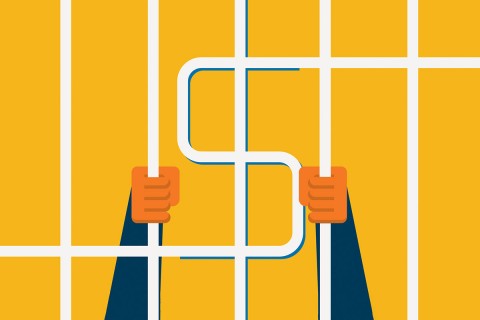How faith-based organizing helped end money bail in Illinois
The Bible provided some healthy agitation as we built coalitions to literally set the captives free.

In a church basement on the South Side of Chicago in 2016, a multiracial group of about 20 clergy, congregants, and community organizers gathered to reflect together on the intersection of faith, justice, and mass incarceration. We started with a role-playing exercise. Each participant was given a slip of paper that described a hypothetical crime and the alleged perpetrator’s age, race, family members, and prior convictions. Discussion leaders—activists who were familiar with bond court—played the roles of judge and prosecutor.
One by one, each participant stood before the judge. For each case, the judge asked the prosecutor about the alleged crime, engaged in discussion for less than a minute, and then pronounced either a bail amount or release until trial. These decisions were arbitrary, but they stayed within the bounds of what the person playing the judge had observed in real-life bond court proceedings.
After the exercise, people shared a variety of reactions. Some were shocked that such a mockery of a process was used to make far-reaching decisions about people’s lives. Others were not surprised because they had some experience with the criminal court system, either as defendants or in support of others. Everyone in the room was angry and committed to work together to fight this unjust system that devastates the lives of hundreds of thousands of people, especially Black people and poor people.





